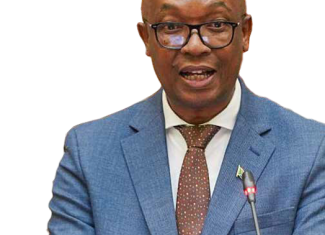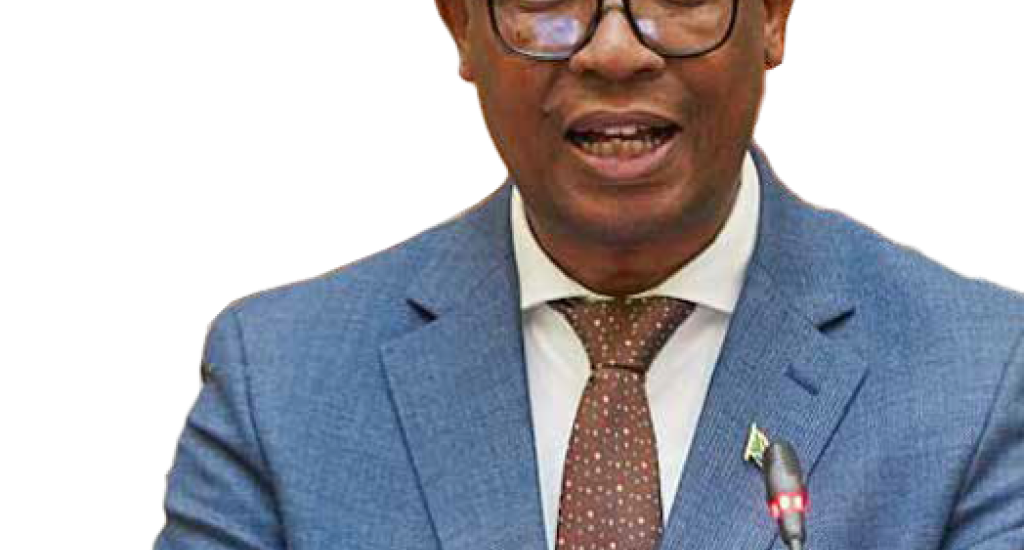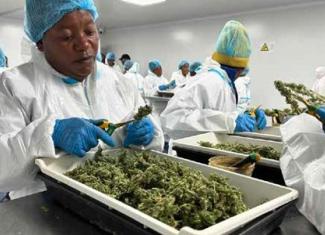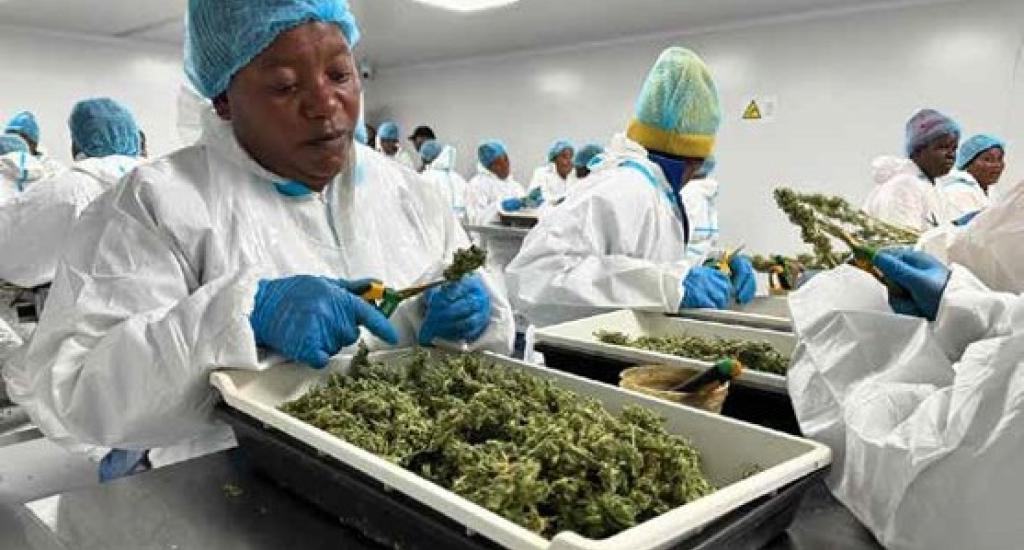Dtic to unlock economic reform through billions of investments
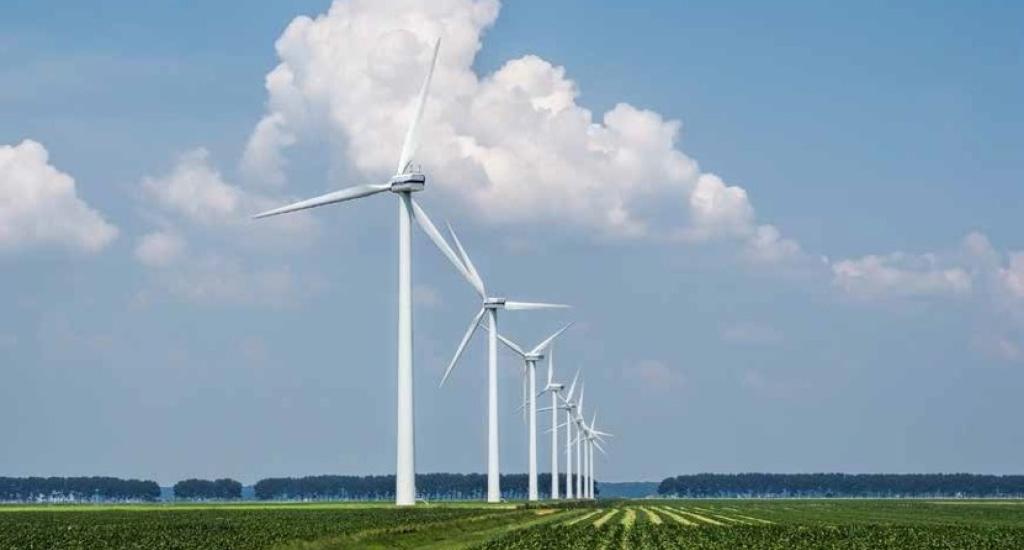
Trade, Industry and Competition Minister Parks Tau has revealed that his department is driving a R700 billion investment pipeline into the economy to unlock reform.
Delivering his 2025/26 Budget Vote Speech in Cape Town recently, the Minister emphasised that investment is the lifeblood of growth and job creation.
“That is why we have meticulously curated a R700 billion pipeline of credible, investable projects spanning critical sectors.
“From 25 gigawatts of transformative energy projects worth R339 billion – solar parks, wind farms, battery storage, gas-to-power – that will finally end energy insecurity and catalyse industrial revival, to vital upgrades in transport and logistics, manufacturing, agro-processing, and digital infrastructure,” he said.
Together with improved performance of South Africa’s electricity, rail and logistics sectors, as part of the country’s growth agenda, Minister Tau said the department is committed to an industrial policy that will improve the competitiveness of South African manufacturing, support investment in new industries and build on South Africa’s mineral and resource endowments.
“Our industrial policy promotes local economic activity, and its review will be guided by opportunities in diversification, decarbonisation and digitalisation,” he explained.
Creating opportunities
In order to turn constraints into opportunities, Minister Tau said the department is convening investors, industry and regulators in strategic platforms; co-investing as equity partners in priority sectors; catalysing credit guarantees, policy
certainty bonds and concessional infrastructure finance; and enabling fast-track licensing, streamline visas for scarce skills, and digitise permits through “an Omnibus Fast-tracking Act”.
He added that the department is pivoting its development finance institutions (DFIs) – the Industrial Development Corporation, National Empowerment Fund and Export Credit Insurance Corporation – from passive lenders to frontier-seeking equity partners, creating new industries as their original mandates intended.
“With the support of Cabinet, we have stabilised the governance at our DFIs. We are working with our partners in government, including the National Treasury and the Department of Small Business Development to catalyse the deployment of dynamic financing instruments that will unlock trillions in private capital,” said the Minister
Alongside this, and in line with the DFIs plans for industrialisation, he said the department is planting the seeds for the industries of tomorrow.
He made reference to the Critical Minerals and Metals Strategy that is backed by a powerful 150% tax incentive for New Energy Vehicle manufacturers from March 2026. The strategy aims to move South Africa beyond raw exports into high-value beneficiation.
Renewable energy
With regard to South Africa’s renewable energy, which President Cyril Ramaphosa recently described as having a potential to underwrite the country’s Green Hydrogen Commercialisation Strategy, Minister Tau said the department has identified the Boegoebaai Special Economic Zone in the Northern Cape as the ideal location for the initial rollout of the energy plan.
“Provinces such as the Western Cape and Eastern Cape have also been targeted for economic development. This sector proves that [when] we one line with our sister department of Energy and Electricity, we can realise our decarbonisation goals,” he added.
Additionally, the Minister said the rollout of the National Policy on the Commercialisation of Hemp and Cannabis will be supported by one line schemes, dedicated hubs, and pioneering Cannabis Indigenous Knowledge Sandboxes, which promises to generate new rural livelihoods and significant export revenue, targeting 10% annual growth from a R14 billion base.
Inclusive economic transformation
Minister Tau emphasised the importance of the Transformation Fund, that was announced by President Ramaphosa earlier this year, in driving a structural economic shift. He said for too long, enterprise and supplier development (ESD) efforts have fallen short of their potential.
“Despite regulations requiring companies to allocate 3% of their net profit after tax towards ESD, only 61% of these funds reach their intended beneficiaries. This leaves an estimated R26 billion untapped each year. The Transformation Fund changes this. By ring-fencing, aggregating, and centrally managing these contributions, we will ensure that they are deployed with scale, discipline and impact,” the Minister explained.
These funds include the Equity Equivalent Investment programme pipeline projects of R1 billion and other sectoral funds (R3 billion) such as mining, information communication technology, automotive and financial sector.
Smarter transformation
“The response to this initiative has been overwhelmingly positive, and the message is clear: South Africa is ready for a smarter, more accountable model of transformation,” said the Minister.
International collaborations
Minister Tau said he envisions an Africa that is not on the periphery of global trade, but at its very heart, as South Africa is demonstrating through its G20 Presidency. He described a future where South Africa spreads its wings to engage the world, not merely as an exporter of goods, but as a creator of value, a connector of regions and a catalyst for shared prosperity.
Consolidating the African Continental Free Trade Agreement (AfCFTA) is central to what he described as “a Butterfly Strategy”.
“We celebrate the rise of South African value-added exports under the AfCFTA to R820 million, but this is just the beginning. We are aggressively finalising an automotive pact to deeply integrate our manufacturers into regional supply chains and expediting the ground-breaking Protocol on Digital Trade, positioning Africa as our bedrock, resilient market.
“We are also assuming the Chair of the Southern African Customs Union (SACU), where we will lead the conversation on a reimagined SACU,” said the Minister.
Enhanced global trade
Beyond the continent, the department is actively resetting and deepening key partnerships, including enhancing mutually beneficial trade and investment, having submitted its General Terms Framework Deal, and secure the future of Africa Growth and Opportunity Act with the United States.
He added that the department’s renewed intent with the European Union focuses on a Clean Trade and Investment Partnership, backed by an initial R90 billion commitment, opens vital duty-free access for exports in key sectors.
“This initial amount is a facilitation which we expect will unlock even more investment value,” he explained.
The Minister added that the department is also intensifying the implementation of the Framework Agreement with China, with a particular focus on diversifying South Africa’s trade. He welcomed the recent announcement made by President Xi Jinping regarding preferential market access to African Countries.
The Dtic has a budget of R11 billion for the 2025/26 financial year, which the Minister described as a focused down payment aimed at removing trade barriers, ensuring effective resource deployment, and catalysing new growth frontiers.v



